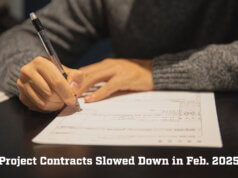 Current planning and management have proven insufficient to address the challenges of water security. A paradigm shift is necessary in the way water sector professionals design and manage urban water systems. Dr. K. Vijaya Lakshmi, Vice President, Development Alternatives, delves on the need for adaptation of methods like rainwater harvesting and wastewater recycling by communities and societies, and the need for conducting regular audits to measure the progress of water management.
Current planning and management have proven insufficient to address the challenges of water security. A paradigm shift is necessary in the way water sector professionals design and manage urban water systems. Dr. K. Vijaya Lakshmi, Vice President, Development Alternatives, delves on the need for adaptation of methods like rainwater harvesting and wastewater recycling by communities and societies, and the need for conducting regular audits to measure the progress of water management.
Urban areas in India are currently facing tremendous pressure due to various socio-economic, technical and infrastructural challenges. Inadequacies in infrastructure, absence of proper planning, dysfunctional institutional systems, and lack of awareness and involvement of communities is resulting in the creation of urban spaces that are devoid of even basic amenities and provide a poor quality of life. Two major challenges in urban areas are imprudent use of water and inefficient solid waste management system.
As India is developing, demand for water is increasing both in rural and urban sectors. Annually, more and more people are moving into cities, and the figures are expected to reach about 600 million by 2030 making India more peri-urban than rural. It is estimated that out of the total precipitation of around 400 million hectare metres in the country, the surface water availability is about 178 million hectare metres. Out of this, about 50 per cent only can be put to beneficial use because of topographical and other constraints.
In addition, there is a groundwater potential of about 42 million hectare metres. Water being a prime natural resource and a basic human need, planning and development of water resources need to be governed by national perspectives. Water does not respect state boundaries. Not only rivers but even underground aquifers often cut across state boundaries. Thus there is a need to change our thinking about water systems.
The United Nations suggests that each person needs 20-50 litres of safe fresh water a day to ensure their basic needs for drinking, cooking and cleaning. If we demand a certain level and quality of water supply, it is imperative that it’s planning is initialised and policies are implemented within an integrated framework. While water is a basic need, the supply of potable water to citizens at their doorstep involves significant costs in building, operating and maintaining a system to do so.
Efficiency through metering
In a water supply system, service provided to citizens is directly measurable, and therefore it is necessary that all the water supplied to all categories of consumers should be metered. Metering will also induce efficiency in use of water; reveal physical and administrative leakages in the system, and enables consumers to be charged for consuming more. Therefore, to introduce a volumetric-based tariff structure for water charges, metering all connections is essential.
Current planning and management have proven insufficient to address the challenges of water security. A paradigm shift is necessary in the way water sector professionals design and manage urban water systems. The need for equitable allocation of water resources among all sections of society is more pronounced than ever before. Planning for judicious allocation should take into consideration the needs of municipalities, industries, agriculture, energy production, and ecosystem services.
In reaching the unreached, the innovative, pay for use service delivery models experimented by community level small private operators in the recent past are commendable. Some of these models are exploiting the potential use of ‘smart’ technology to minimize non-revenue water and for providing water supply services with reliable quality.
As we improve water supply systems, 70-80 per cent of the supplied water comes out as waste. Besides water supply systems, availability of wastewater treatment systems is equally important as we urbanise. Currently, the capacity to treat wastewater in the country is abysmally low and wherever they are built, not functioning to their full potential. Water conservation and quality management targets also require citizen awareness. Methods like rainwater harvesting and wastewater recycling should be adopted by communities and societies, and regular audits should be conducted to measure the progress. Citizen level water quality monitoring should be undertaken using field testing kits to safeguard the different water sources and by implementing polluter pays principles. Such initiatives will certainly go a long way in improving water quality, water availability and thereby improving public health, livelihoods and overall economy.
Challenge of SWM
Solid waste management is another major challenge in urban areas throughout the world. Without an effective and efficient solid waste management programme, the waste generated from various human activities, both industrial and domestic, can create a multitude of negative impacts. It poses a risk to our ecology, economy and society by polluting our natural resources, contaminating groundwater and other water sources and soil which leads to health hazards. The responsibility of waste management lies with urban local bodies. Unfortunately, cities and municipalities are not able to cope with accelerated pace of production of waste. Proper municipal waste management systems are either absent or inadequate.
The current scenario needs a three-pronged approach. First, future system design should be taken up with a better understanding of the capacity building needs of the current actors besides the technological and infrastructure needs of such a system. Second, changing mindsets and behaviour is a key to achieving success in this area. There is a need for building broader stakeholder engagement to build perspectives and maximise involvement in implementation.
Being an educational hub, there is a lot of potential to engage the youth. A more strategic focus is required to reduce, recycle and reuse the waste generated or processed. Group awareness and training programmes for waste segregation, management and disposal should be organised regularly. There might already be instances of autonomous adaptation at the individual, household and community level. These best practices need to be captured and publicised. Third, waste-to-wealth business models and enterprises ensure sustainability of municipal solid waste interventions.
The present model of urban growth needs a major rethink to accelerate a transition towards a sustainable tomorrow.











